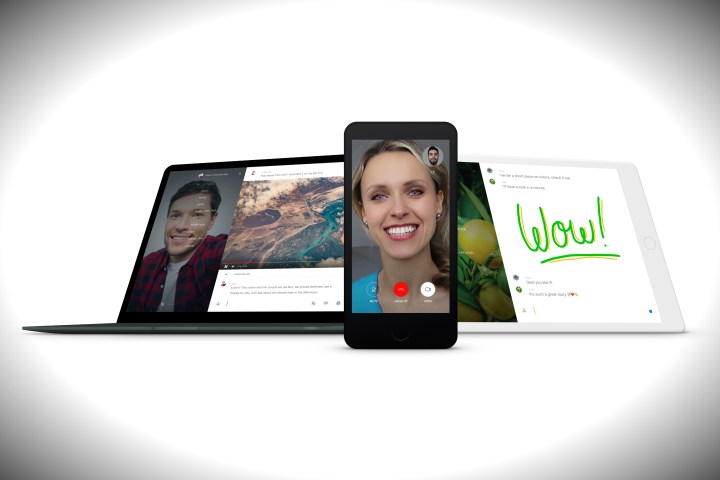
Wire is backed by Skype co-founder Janus Friis, and is a competitor to the likes of WhatsApp and Telegram. In fact, Wire made all of its conversation content end-to-end encrypted months before WhatsApp flipped the switch — OK, so Wire doesn’t have one billion users but, hey, it counts.
The Switzerland-based company behind the app has been adding new features over the past few weeks, such as the ability to customize sound notifications; the ability to copy and past images from other apps into your conversations; Brazilian-Portuguese translations; and content forwarding. The highlight, though, is the app’s ability to share a user’s location.
One handy feature is the ability to set a “compromise” location, so that everyone can meet in a place that’s convenient rather than trying to find each other. Unfortunately, the whole location-sharing function is only available on the Android version for now, but it will be rolling out to iOS, and the web “soon.”

Wire launched in December 2014 and allows users to make end-to-end encrypted voice and video calls, and also features end-to-end encrypted text messages, photos, and sketches.
“Wire doesn’t hold the decryption keys and our software contains no backdoor,” according to the company’s website. “Your data is your data — Wire has no access to it.”
The startup has about 50 employees, and while it doesn’t share monthly user figures, a March Bloomberg Business report cites that Wire receives about 150,000 to 200,000 new user sign-ups per month.
Wire is far from the first messaging app to tout its encryption features, though it claims that its approach is the most comprehensive. Popular messaging app Line, for example, rolled out an end-to-end encryption feature called “Letter Sealing” in October 2015. The Islamic State reportedly used Telegram, which offers a questionable level of encryption. Meanwhile, Edward Snowden favors an encrypted messaging app called Signal.
Editors' Recommendations
- Google Messages vs. Samsung Messages: Which app should you use?
- WhatsApp now lets you add short video messages to chats
- What is WhatsApp? How to use the app, tips, tricks, and more
- WhatsApp now lets you control who can see your profile
- Tinder app now lets you run a background check on your date


